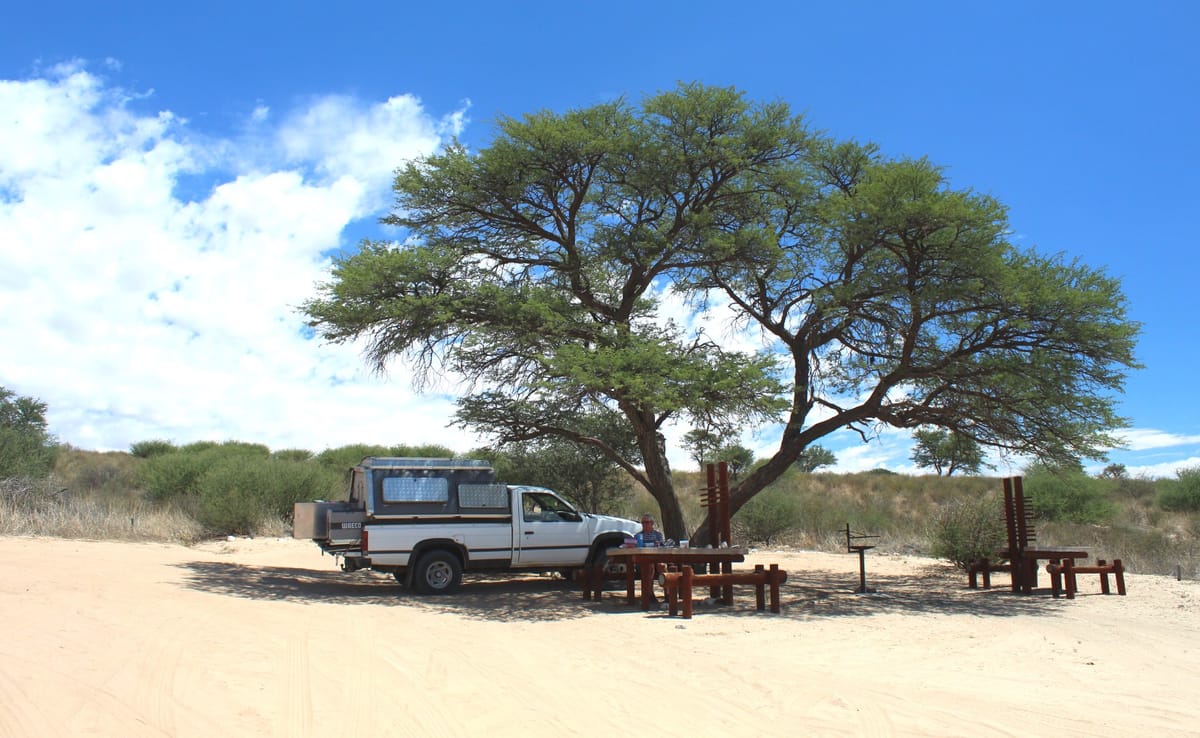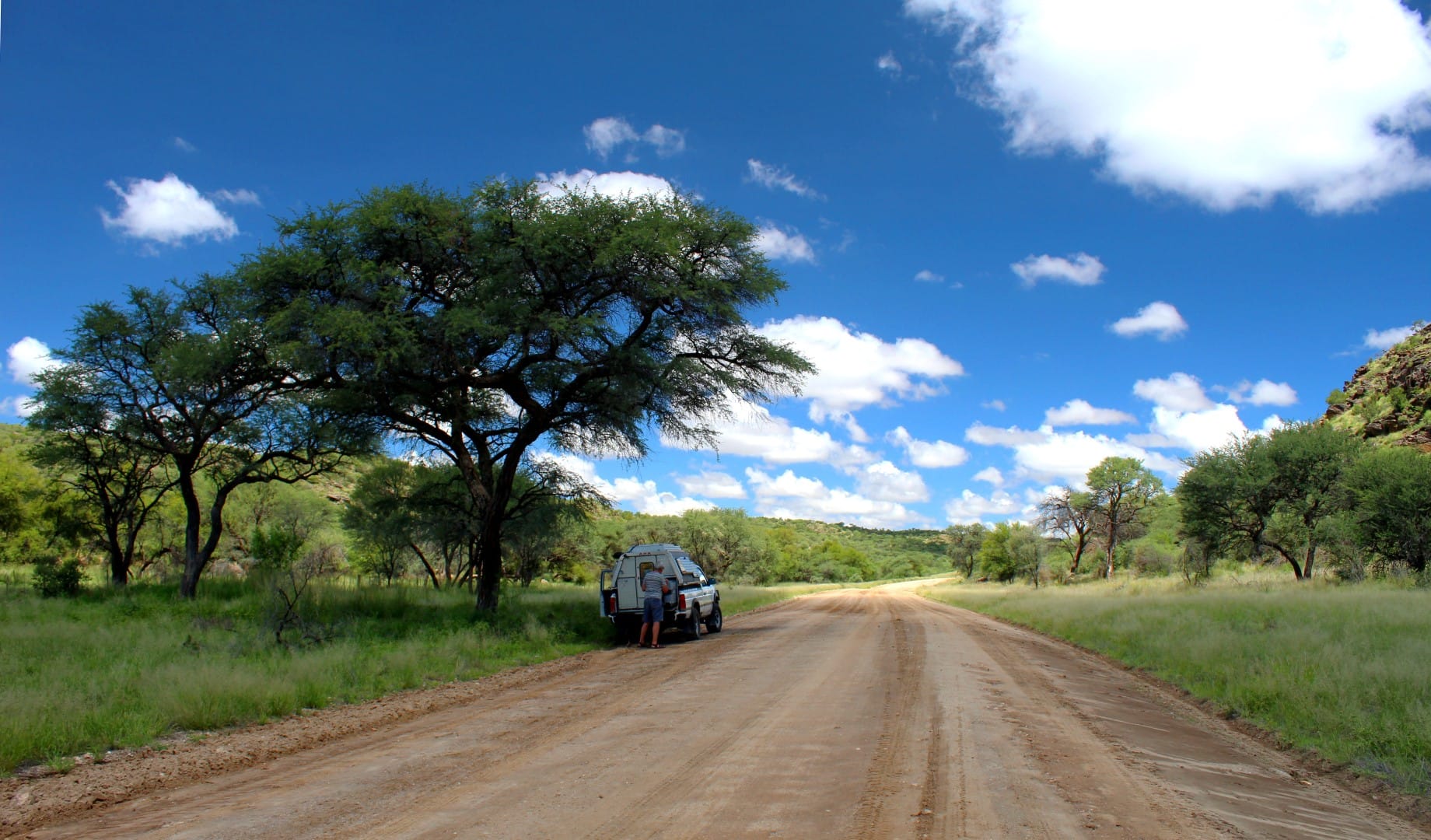Coffee, tea, and other rituals in the wild
Stopping for coffee or tea next to the road is an essential part of travelling in southern Africa.

Few rituals anchor travel days more than a morning cup of coffee or tea. In Southern Africa, these drinks carry both routine and meaning, grounding travellers whether in the Namib Desert, Kruger camps, or the banks of the Zambezi.
Coffee has grown in Southern Africa since colonial times, with Malawi, Zambia, and Zimbabwe producing notable beans. Travellers often bring along portable presses or moka pots to brew fresh cups on campfires. Brewing coffee while the sun rises over Etosha National Park turns a simple ritual into a memorable encounter with place.
Tea carries equal importance. South Africa’s rooibos, unique to the Cederberg mountains, is celebrated not only for its flavour but also for its role in hospitality. Travellers often encounter it in lodges, camps, and roadside stops, enjoyed plain or with honey. Rooibos’ caffeine-free character makes it a staple for evenings by the fire, soothing after long drives.
In Botswana, bush guides often prepare strong black tea during mid-morning breaks on game drives. The ritual involves more than refreshment; it becomes a pause to share stories and observe wildlife in silence. Along Zimbabwe’s highveld, travellers may be invited to share traditional herbal teas brewed with local plants, each with its own associations of healing and comfort.
Coffee rituals in the wild carry more than flavour. They mark time, structure the day, and link travellers to landscapes. Brewing a cup beneath acacia trees near the Okavango or pouring tea as elephants pass along the Chobe River turns a drink into a ritual of belonging. The act itself becomes memory.

For modern travellers, carrying a small supply of favourite tea or coffee ensures continuity, yet allowing space for local flavours broadens the journey. Each cup, whether sipped alone at sunrise or shared around a campfire, is part of the story of travel.

• 𝙵𝚘𝚛 𝚜𝚝𝚘𝚛𝚢 𝚜𝚞𝚋𝚖𝚒𝚜𝚜𝚒𝚘𝚗𝚜 𝚘𝚛 𝚛𝚎𝚟𝚒𝚎𝚠𝚜, 𝚌𝚘𝚗𝚝𝚊𝚌𝚝 𝙼𝚊𝚛𝚒𝚊𝚗𝚊 𝚟𝚒𝚊 𝚎𝚖𝚊𝚒𝚕 (𝚎𝚍𝚒𝚝𝚘𝚛@𝚝𝚑𝚎𝚝𝚛𝚊𝚟𝚎𝚕𝚝𝚑𝚛𝚎𝚊𝚍.𝚌𝚘.𝚣𝚊).
• 𝙵𝚘𝚛 𝚙𝚊𝚛𝚝𝚗𝚎𝚛𝚜𝚑𝚒𝚙𝚜, 𝚖𝚊𝚛𝚔𝚎𝚝𝚒𝚗𝚐, 𝚘𝚛 𝚌𝚘𝚗𝚝𝚎𝚗𝚝 𝚎𝚗𝚚𝚞𝚒𝚛𝚒𝚎𝚜, 𝚌𝚘𝚗𝚝𝚊𝚌𝚝 𝙰𝚗𝚌𝚑𝚎𝚗 𝚟𝚒𝚊 𝚎𝚖𝚊𝚒𝚕 (𝚊𝚗𝚌𝚑𝚎𝚗@𝚒𝚘𝚕𝚘𝚐𝚞𝚎𝚖𝚎𝚍𝚒𝚊.𝚌𝚘𝚖) 𝚘𝚛 𝚜𝚎𝚗𝚍 𝚊 𝚆𝚑𝚊𝚝𝚜𝙰𝚙𝚙 𝚑𝚎𝚛𝚎.




Comments ()